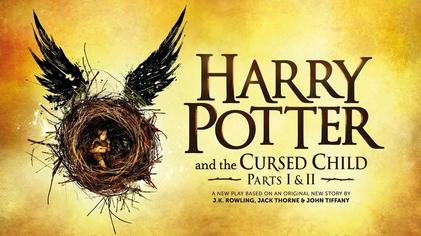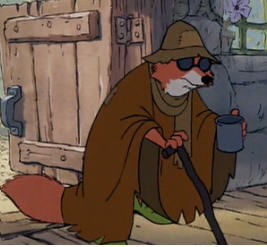Harry Potter and the winds from fairyland.
Harry Potter and the cursed child has more than one surprise in store for the viewers. The actress who plays Hermione Granger has surprised many fans even before the play was seen by anyone, however. Why ? Because she has African roots. The fact that she got the part made some people crack jokes about the slogan with which the play was promoted : 'sometimes darkness comes from unexpected places.'
It's easy to call people who say things like that racists or bigots, like some guys and gals did on the internet. Some of them were, no doubt. Many of them were not, I'm sure . They were just attached to the image they had in mind from reading the most lovely books or from seeing the even more lovely Emma Watson in the movies.
The whole discussion made me think about the same kind of furore, several years ago, when a girl from Pakistan was told by movie moguls that she couldn't play a hobbit, because all hobbits were white. But we are talking about creatures from imagination, from some kind of fairyland, aren't we ? So can't we imagine them exactly as we want? Isn't that the beauty of it all?

Some of my students in the art history class asked me if I had to say something about it. Well, yes. Yes, I have.
The writer J. Allen once said (and I'm paraphrasing here) that it's impossible to define fantasy. Trying to do so is a bit like trying to catch fog with a fishing net. The other world and its inhabitants are shapeless. Shapeshifting, morphing from one form into the other, they travel along with readers, listeners, viewers and gamers. They travel through the air, blown in all directions by the winds from fairyland. Time and time again they use their chameleon-like superpowers in order to adapt to the time and place in which they find themselves this time.
Stories, myths and legends travelled along the Silk route, along the Slave route and along the rooters that make our internet possible. The storytellers of today are working in a global village, in which the Greek gods and the golem from Prague are neighbours who complain together about the annoying sounds that the banshees next door make. And don't get them started about Anansi, the mythological house spider.
And then the storytellers themselves. Don't trust those villagers. The author J. Child (what's in a name?) divided them into three categories.

The first is the so-called blind beggar. I like this fellow. He's a vagabond, who roams through forests and fields, through hamlets and Sin Cities. He sells his stories in corners, squares or under the shadow of an apple tree. If he's lucky, then he'll be able to use his talents to get a crust of bread and a cup of wine. Perhaps even a warm bed and some good company. In order to achieve this, he'll have to adapt his tales a little bit, just to please the listeners. Customer is king, he says.
Another type of teller uses stories as some kind of nursery rhymes. She puts little princes and princesses under smooth blankets while making soothing sounds. If the stories are too scary, then she knows that she'll be up all night. So she changes the dark menace of the big bad wolf and the witch into something harmless and even silly. And when the little girl gets older, then she's ready for another story that warns her not to trust strangers to easily. No beast in bed for her, she admonishes.
And finally, there's the professional teller. Today he's peddling his wares on the biggest market square ever. If this guy plays his cards right, he could become richer than the queen of England. Hans Christian Andersen could only dream of that. Talking about Andersen, did you know that his most famous tale, the ugly duckling, was semi-autobiographical ? In real life, poor Hans never became a swan but suffered greatly because of his one-sided love affair with the singer Jenny Lind. She lives and sings on in his story about the Chinese nightingale, by the way.
So, who are we to decide that stories should be unchangeable? They aren't set in stone, but they are like seeds of the future, rooted in the past. Like pollen, they travel on the winds of imagination and they turn into flowers of many shapes and colors.
Cinderella, for example, is said to have her roots in China, hence the fascination for little feet, some people dare to whisper.
Oh, and her glass slipper came to be because of a bad translation. The French words 'de vair' (made of fur) were misinterpreted by Charles Perrault when he wrote 'de verre' (made of glass).
So, what does this all mean? Simply that you can't pin stories down. Which version is true? The simple answer is : they all are. Imagination is real, but you can't catch it, tame it or use it for some agenda. There will always be people who are trying to do so, but they are cheaters, not storytellers. They will never really succeed, they might as well try to catch fog with a fishing net.
Fantastic post! The very best of, in fact what makes fiction the best, all summed up in one article. Incredibly well written, and everything I love about fiction! Keep up the most excellent work! Upvoted and already following!
Thanks. I absolutely like what you are doing too, so I'm also following your tracks. Pleased to meet you!